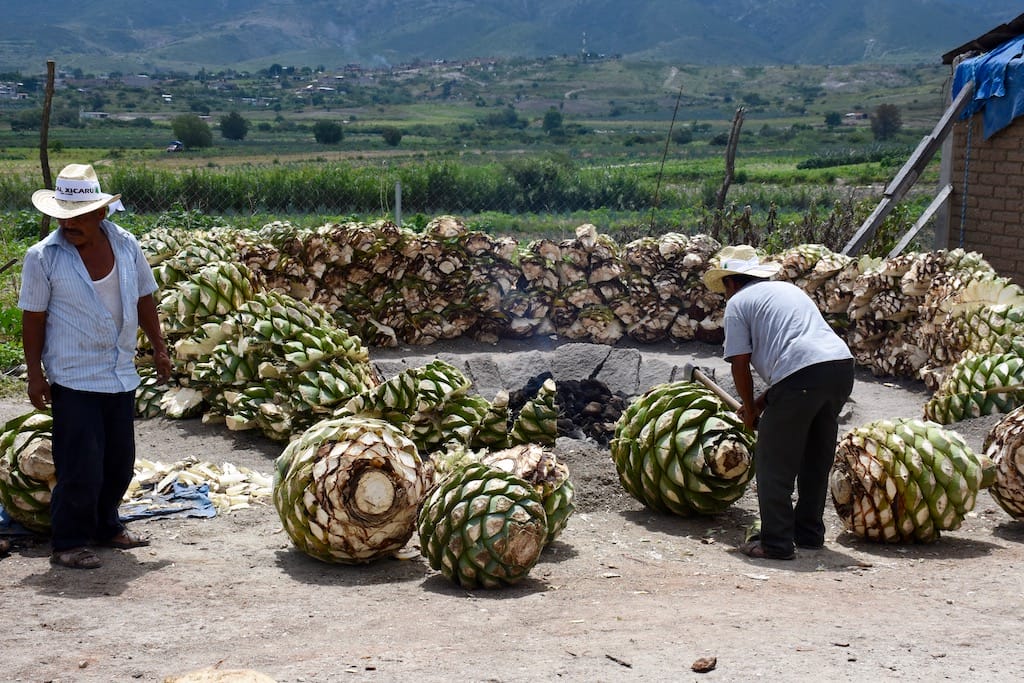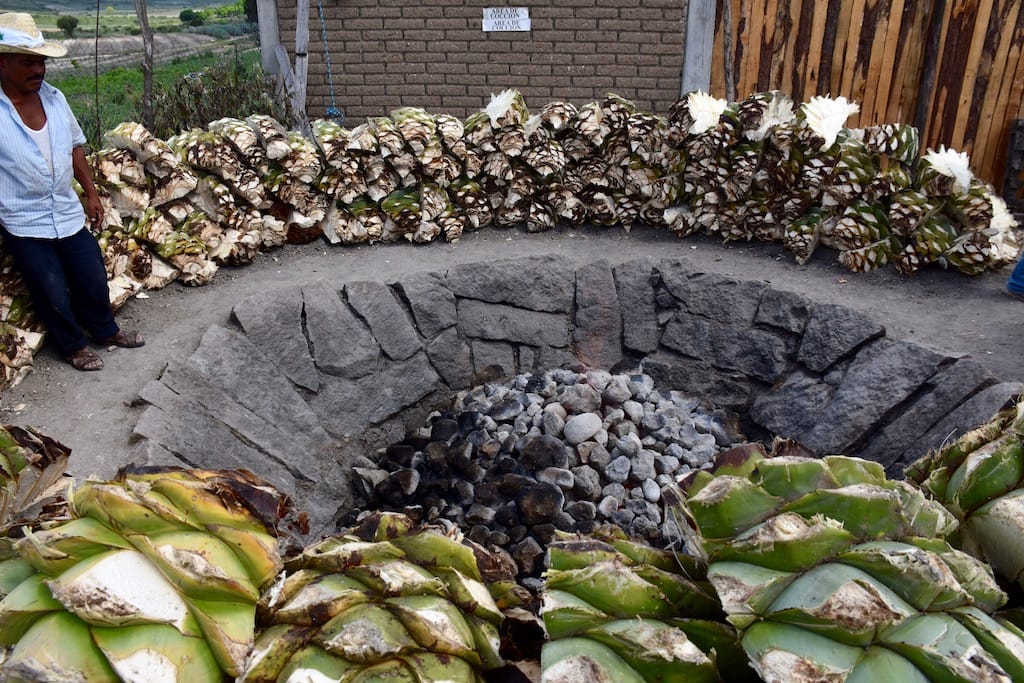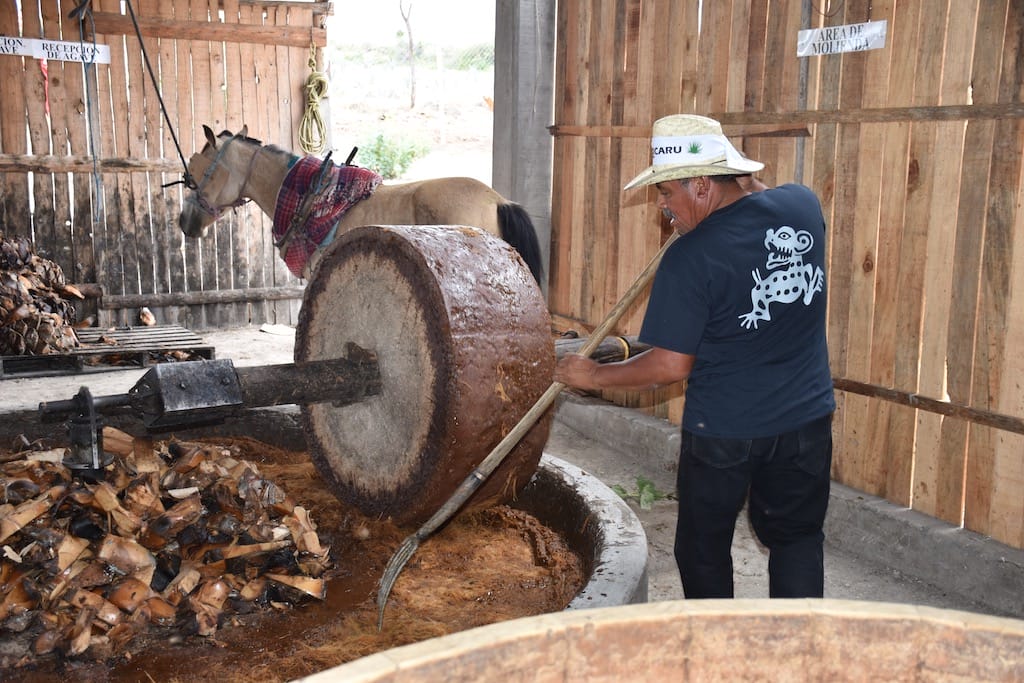By Leslie Hicks
Mezcal, sexy, bad bitch that she is, is more than just her smoke show reputation. Fresh, herbaceous, complex and, yes, often smokey, with tasting notes that can range from eucalyptus and cacao to overripe papaya and even shoe leather, mezcal’s fan base has exploded over the last few years, and never more so than now in South Florida.
No longer merely the obscure spirit of choice for curly-stached barkeeps, local restaurants and retailers are offering broadening selections of mezcal, and with events popping up like this year’s inaugural Mezcal Lauderdale, it’s finally getting some much-deserved attention. Tacocraft, El Vez, Sparrow and La Biblioteca have a great selection for the mezcal-curious, while, among local retailers, Primo Fine Wines & Spirits has the widest selection.
Hosted at the Le Méridien hotel this past May by Toro Latin Kitchen & Tequila Library (aka La Biblioteca) and UniteUs Group, Mezcal Lauderdale featured 40 brands and welcomed 800 guests. “Mezcal is on par with whiskey right now as far as popularity,” says the festival’s co-founder Andrew Martineau. “It’s on track to becoming a major spirit category.” But mezcal is far from the new kid on the block. For the past 500-years, agave, the plant mezcal is derived from, has been distilled in Mexico. There is even archeological evidence of mezcal production dating back to pre-Hispanic times.
 Tequila vs Mezcal: What’s the difference? First and foremost, any spirit distilled from an agave plant is classified as mezcal. So that means Tequila, the rockstar of agave spirits, is a mezcal, but not all mezcal is Tequila. Tequila is made from blue Weber agave and has hyper-specific regulatory classifications, production methods, can only be made in the state of Jalisco and is named after the town of Tequila. In fact, all Mezcal (note the capital M) is mezcal, but not all mezcal is Mezcal. Confused, yet?
Tequila vs Mezcal: What’s the difference? First and foremost, any spirit distilled from an agave plant is classified as mezcal. So that means Tequila, the rockstar of agave spirits, is a mezcal, but not all mezcal is Tequila. Tequila is made from blue Weber agave and has hyper-specific regulatory classifications, production methods, can only be made in the state of Jalisco and is named after the town of Tequila. In fact, all Mezcal (note the capital M) is mezcal, but not all mezcal is Mezcal. Confused, yet?
Mezcal has to be certified by the Mezcal Regulatory Council, which has its own set of rules, regulations and territories within Mexico, while mezcal can be made in someone’s backyard as long as it’s distilled from agave. Under the umbrella of mezcal are regional spirits like Bacanora, raicilla, lechuguilla and palmilla. All of these relatively unknown palliatives are available in the United States now after riding the coattails of Mezcal’s booming popularity nationwide.
If you’re ready to try your first taste, South Florida’s own Mezcal Campante is an excellent place to start. A small-batch, artisanal Mezcal made from a blend of Espadín and Barril agaves, Mezcal Campante is a craft spirit that is approachable for newbies. Described as silky and full-bodied, with a balance of fruit, citrus blossom, rosemary and light smoke, Campante’s overall elegance means it can be enjoyed on its own or as a cocktail mixer.
Campante’s CEO Shirley Wood Oakes emphasizes the importance of the mezcalero, the expert distiller in charge of every batch, in the outcome of the finished product. Master mezcaleros typically come from families whose knowledge is passed from generation to generation, as is the case for Campante’s mezcalero Raúl Rodriguez Reyes. “We like to say it takes the heart of agave and the heart of the mezcalero to make mezcal,” Oakes says. “This truly is a farm to table product. It’s wonderful to see that mezcal is getting this appreciation now. It really is a beautiful spirit.”
 Like grapes with wine, there are numerous varieties of agave that can go into mezcal. Similarly, a mezcal made with the respected but common workhorse of agaves, Espadín, compared to one made with rare, wild Tapeztate will experience a difference in flavor profile akin to tasting a plush merlot and a tannic Barolo.
Like grapes with wine, there are numerous varieties of agave that can go into mezcal. Similarly, a mezcal made with the respected but common workhorse of agaves, Espadín, compared to one made with rare, wild Tapeztate will experience a difference in flavor profile akin to tasting a plush merlot and a tannic Barolo.
For those who prefer a little age on their spirits, try Mezcal Xicaru Reposado. One of the represented brands at Mezcal Lauderdale, Xicaru specializes in 100 percent Espadín Mezcal and offers a reposado mezcal, serving as a perfect example of mezcal’s potential to stand next to the best tequila. Aged mezcal is smoother than joven, or young, styles. “Mezcal stands up very well to spicy food—Mexican food, Asian food, even Italian,” says Xicaru co-founder Dennis Barnett, who created cocktails for the event. “The new customer base is very creative with how they drink mezcal,” adding that most stateside consumers prefer it in cocktails paired with different cuisines.
The world of agave spirits is sprawling, colorful, storied and sometimes outright confusing, but the thirst for them is growing. For those obsessed with spirits steeped in tradition, that is something to drink to.




